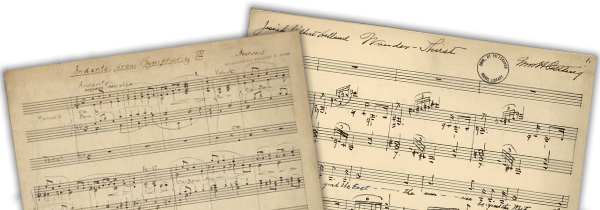
There is no deposit copy in the Library of Congress for “A Thousand Miles from Home.”
John Mahon, a friend of Foster’s, offers insight into the songs origins in his article “The Last Years of Stephen C. Foster” (New York Clipper, March 24, 1877):
One of these [songs] and a most beautiful one—“Our Bright, Bright Summer-days are Gone”—he took to Pond, who refused it for some reason or other, and it made him feel very despondent; for about this time Lee & Walker had ceased employing him in consequence of hard times. I was then “under the weather” myself, and I remember one evening, when we were both pretty “hard up”—indeed, neither of us had a cent, and I had a family besides—suddenly he sat down to the piano.
“John,” said he, “I haven't time to write a new song, but I think I can write ‘Our Bright, Bright Summer-days are Gone,’ from memory.”
He sat down, and wrote the words and music from memory in about an hour and a half.
“Take this round to Daly,” said he, “and take what he will give you.”
Mr. John J. Daly, now of 944 Eighth avenue, was then my publisher, and was at 419 Grand street. I took the song to Mr. Daly. He was proud to get a song from Foster. He tried it over, and it was really beautiful. He offered a sum which, though not a tithe of what Foster got in his better days, was still considered very handsome; and this “stone which the builders (Pond & Co.) rejected” became very popular. Subsequently the late Thomas D. Sullivan composed brilliant variations for this song, and it is a favorite to this day. His next was one of his finest, and was named “Our Willie Dear is Dying;” next “Little Belle Blair;” and then followed “When the Bowl Goes Round,” “A Thousand Miles from Home,” and many others.